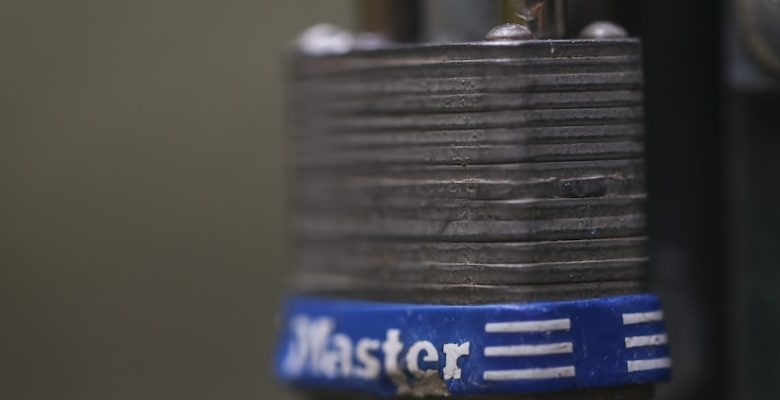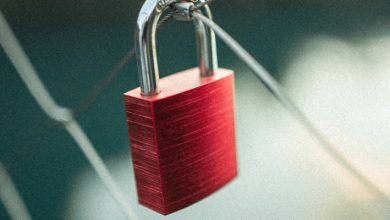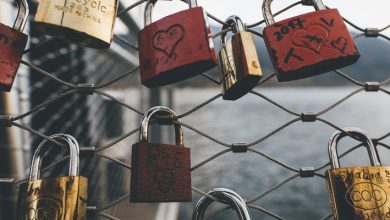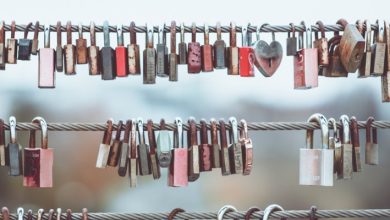How to Secure Your Crypto Wallet: Essential Tips for Safety

- Understanding the importance of securing your crypto wallet
- Common threats to your crypto wallet and how to protect against them
- Choosing the right type of crypto wallet for your needs
- Best practices for creating a strong password for your crypto wallet
- How to safely store your backup and recovery phrases
- Implementing additional security measures to safeguard your crypto assets
Understanding the importance of securing your crypto wallet
Understanding the significance of securing your cryptocurrency wallet is crucial in ensuring the safety of your digital assets. A crypto wallet acts as a digital vault where you store your cryptocurrencies, such as Bitcoin, Ethereum, or Litecoin. Without proper security measures in place, your funds are at risk of being stolen by hackers.
When you secure your crypto wallet, you are essentially protecting your investment from unauthorized access and potential theft. It is essential to use strong passwords, enable two-factor authentication, and regularly update your wallet software to prevent security breaches. By taking these precautions, you can mitigate the risk of losing your funds to cybercriminals.
Furthermore, securing your crypto wallet also involves keeping your private keys safe and secure. Private keys are used to access your funds and make transactions, so it is vital to store them offline in a secure location. By keeping your private keys offline, you reduce the risk of them being compromised by malware or phishing attacks.
Overall, understanding the importance of securing your crypto wallet is essential for safeguarding your digital assets. By implementing robust security measures and following best practices, you can protect your funds from potential threats and ensure peace of mind when it comes to managing your cryptocurrency investments.
Common threats to your crypto wallet and how to protect against them
When it comes to securing your crypto wallet, it is important to be aware of the common threats that could compromise the safety of your funds. By understanding these risks, you can take the necessary precautions to protect your assets and prevent potential losses.
- Phishing Attacks: One of the most common threats to crypto wallets is phishing attacks, where scammers try to trick users into revealing their private keys or passwords. To protect against phishing, always double-check the URL of the website you are using and never share your sensitive information with anyone.
- Malware: Malicious software can infect your devices and steal your crypto assets if you are not careful. To prevent malware attacks, make sure to use reputable antivirus software and avoid clicking on suspicious links or downloading files from unknown sources.
- Weak Passwords: Using weak passwords can make it easier for hackers to gain access to your crypto wallet. Be sure to create strong, unique passwords for all your accounts and consider using a password manager to keep track of them securely.
- Physical Threats: Your crypto wallet can also be vulnerable to physical threats, such as theft or loss of your hardware wallet. To protect against these risks, store your hardware wallet in a safe place and make sure to have a backup of your recovery seed in case it gets lost or damaged.
By being aware of these common threats and taking proactive steps to safeguard your crypto wallet, you can enjoy peace of mind knowing that your funds are secure. Remember to stay informed about the latest security practices and always be cautious when handling your digital assets.
Choosing the right type of crypto wallet for your needs
When it comes to securing your crypto wallet, choosing the right type of wallet for your needs is crucial. There are several options available, each with its own set of features and security measures.
One popular type of wallet is a hardware wallet, which is a physical device that stores your private keys offline. This makes it less vulnerable to hacking or malware attacks compared to online wallets. Hardware wallets are considered one of the safest options for storing large amounts of cryptocurrency.
Another option is a paper wallet, which involves printing out your private keys and keeping them in a secure place. While paper wallets are secure from online attacks, they are susceptible to physical damage or loss. It is essential to keep your paper wallet in a safe and secure location to prevent any potential risks.
For those who prefer a more convenient option, software wallets are available for download on your computer or mobile device. These wallets are easy to use and provide quick access to your funds. However, they are more vulnerable to cyber attacks compared to hardware wallets.
Ultimately, the type of wallet you choose will depend on your preferences and security needs. It is essential to research different wallet options and choose one that aligns with your risk tolerance and level of technical expertise. Remember to keep your private keys secure and never share them with anyone to protect your cryptocurrency assets.
Best practices for creating a strong password for your crypto wallet
Creating a strong password for your crypto wallet is crucial to ensure the security of your digital assets. Here are some best practices to follow:
- Use a combination of uppercase and lowercase letters, numbers, and special characters.
- Avoid using easily guessable information such as your name, birthdate, or common words.
- Make sure your password is at least 12 characters long to increase its complexity.
- Consider using a passphrase instead of a single word for added security.
By following these guidelines, you can significantly reduce the risk of unauthorized access to your crypto wallet. Remember, the strength of your password plays a critical role in safeguarding your funds from potential threats. Take the time to create a secure password to protect your investment in the volatile world of cryptocurrency.
How to safely store your backup and recovery phrases
When it comes to securing your crypto wallet, one of the most important steps is to safely store your backup and recovery phrases. These phrases are essential for accessing your wallet in case you forget your password or lose access to your device. Here are some tips to help you keep your backup and recovery phrases secure:
- Store your phrases offline: Avoid storing your backup and recovery phrases on any device connected to the internet. Instead, write them down on a piece of paper and keep it in a safe place.
- Use a secure location: Choose a secure and discreet location to store your backup and recovery phrases. Avoid keeping them in plain sight or in easily accessible places.
- Make copies: Consider making multiple copies of your phrases and storing them in different locations. This way, if one copy is lost or damaged, you will have a backup.
- Encrypt your phrases: If you prefer to store your phrases digitally, make sure to encrypt them using a secure encryption method. This will add an extra layer of protection to your sensitive information.
- Keep it private: Do not share your backup and recovery phrases with anyone else. These phrases are the key to your crypto wallet, and sharing them can put your funds at risk.
By following these tips, you can ensure that your backup and recovery phrases are safely stored and easily accessible when you need them. Remember, protecting your crypto wallet is essential for keeping your funds secure in the volatile world of cryptocurrency.
Implementing additional security measures to safeguard your crypto assets
To further enhance the security of your crypto assets, consider implementing additional measures to protect your wallet. One effective way to do this is by enabling two-factor authentication (2FA). By requiring a second form of verification in addition to your password, 2FA adds an extra layer of security to your account. Another important step is to regularly update your wallet software. Developers frequently release updates that address security vulnerabilities, so staying up to date with the latest version can help protect your assets from potential threats.
In addition to 2FA and software updates, you can also consider using a hardware wallet for added security. Hardware wallets are physical devices that store your private keys offline, making them less vulnerable to hacking attempts. By keeping your keys offline, you can significantly reduce the risk of unauthorized access to your funds. Finally, consider diversifying your storage options by using multiple wallets. This way, even if one wallet is compromised, your other assets will remain secure.
By taking these additional security measures, you can better safeguard your crypto assets and minimize the risk of theft or loss. Remember that in the world of cryptocurrency, security is paramount, so it’s important to stay vigilant and proactive in protecting your investments.



